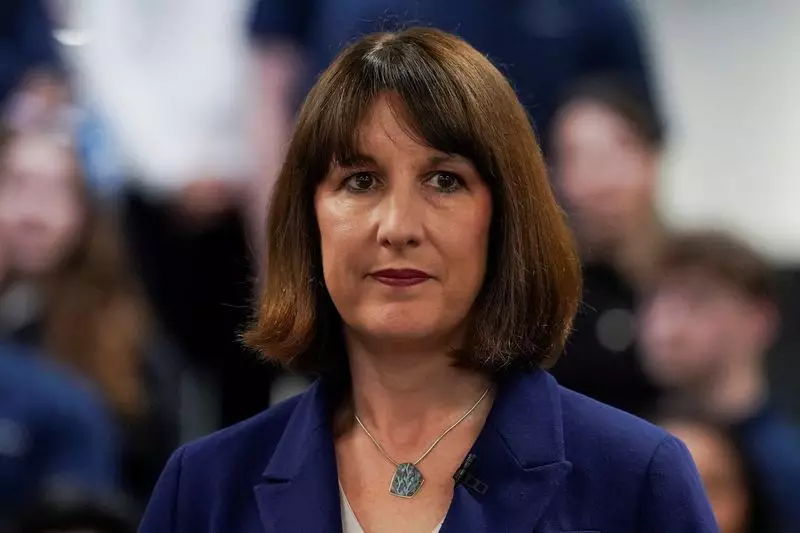In a recent address to Parliament, Britain’s new finance minister, Rachel Reeves, highlighted the dire state of the country’s public finances. Coming into office after a landslide victory on July 4, the Labour government inherited a situation where public spending was set to exceed budget by a substantial 21.9 billion pounds. Reeves wasted no time in announcing immediate cuts of 5.5 billion pounds, with more austerity measures planned for the next financial year.
Reeves outlined a total of 13.6 billion pounds in cuts, with the aim of reigning in public spending and preventing the budget deficit from ballooning further. These measures included reducing funding for projects such as roadbuilding and railways, as well as setting ambitious targets for government departments to find savings. In addition to these cuts, Reeves also decided to reduce spending on higher-income pensioners by stopping an annual payment for heating costs.
The announcement of these austerity measures was met with criticism from the opposition Conservative party, who accused Reeves of using the situation to pave the way for future tax increases. Conservative members dismissed her accusations of mismanagement by the previous government as a political move to shift blame. However, independent experts such as Paul Johnson from the Institute for Fiscal Studies noted that the funding pressures faced by the new government were indeed significant.
Despite the looming challenges, Rachel Reeves emphasized that the Labour government would adhere to its election promises of not raising income tax rates, value-added tax, and other main taxes. Any changes to the tax system would be announced in the formal budget statement scheduled for October. Reeves made it clear that her government would introduce a new set of non-negotiable fiscal rules to address the mounting economic concerns.
As Rachel Reeves and the Labour government navigate these turbulent financial waters, they are faced with the daunting task of addressing the unsustainable state of public spending. With sluggish economic growth, high levels of public sector debt, and a looming budget deficit, tough decisions lie ahead. The full budget statement scheduled for October 30 will reveal the comprehensive plan of action that the government intends to take in order to stabilize the economy and ensure economic stability for the future.
The challenges of public spending under the new Labour government are substantial. Rachel Reeves and her team are tasked with making difficult decisions to bring the budget back on track and prevent further economic instability. With a mix of immediate cuts and long-term plans, the government aims to tackle the mounting fiscal pressures and set the stage for a more sustainable economic future. Only time will tell if these measures will be enough to steer the country towards prosperity.

